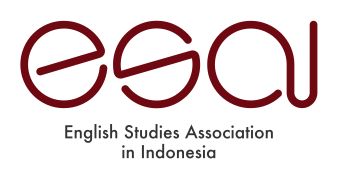The Using of Digital Media to Enhance Teaching and Learning English on the Well-being of Indonesian Students
Abstract
This paper focuses on the using of digital media to enhance teaching and learning English as language difficulties is the critical issue of Indonesian students facing today. The study was conducted at University of Indraprasta PGRI, Jakarta, explored the experiences of students at fifth semester supported the hypothesis that language difficulties influence the level of psychological well-being among Indonesian students. As students from non-English speaking countries enter the globalization era where speaking English is the norm, they are faced with the challenge of learning a new language as a prerequisite to successful and further thriving. The use of digital media has implications for the well-being of Indonesian students as online communication stimulates young learners social connectedness. Academic achievement would also benefit from schools having access to a teaching material aimed at delivering skills for the use of Internet and digital technology. In this paper, the writer tries to explore the new trend of digital media to enhance teaching and learning English not just simply because the students are confronted with digital media in their daily life anyway, but because of the fact that the more channels for the reception of information are used, the better for the students’ language acquisition or their learning process in general. The findings support the conclusion that the using of digital media boosts the English language proficiency, and reduces the levels of cultural stress, academic difficulties, and negative emotions among Indonesian students confronted with other students across the world.
Key words: digital media, teaching English, language learning, well-beingFull Text:
PDFReferences
Baker, M. (2001). The Atoms of Language. New York: Basic Books.
Binder, P., & Smith, K. (2013). The Language Phenomenon. The Language Phenomenon: Human Communication from Milliseconds to Millennia, The Frontiers Collection. ISBN 978-3-642-36085-5. Springer-Verlag Berlin Heidelberg, 2013, 1.
Creswell, J.W. (2012). Educational Research: Planning, Conducting, and Evaluating Quantitative and Qualitative Research (4th Ed). Boston: Pearson Education.
Diener, E. (2000). Subjective well-being: The science of happiness and a proposal for a national index. American Psychologist, 55(1), 34.
Holt, D. and Van Duzer, C. (2000). Assessing success in family literacy and adult ESL. Washington, DC: Center for Applied Linguistics.
Ito, M., Horst, H., Bittanti, M., Boyd, D., Herr-Stephenson, B., Lange, Patricia G., Pascoe, C. J., and Robinson, L.(2008). Living and Learning with New Media: Summary of Findings from the Digital Youth Project. Chicago: The MacArthur Foundation.
James, C., Davis, K., Flores, A., Francis, John M., Pettingill, L., Rundle, M., and Gardner, Howard Gardner (2009). Young People, Ethics, and the New Digital Media: A Synthesis from the GoodPlay Project. Cambridge: The MIT Press.
Marshall, B. (2002). Preparing for success: A guide for teaching adult ESL learners. Available from http://calstore.cal.org/store
M.C. digital media program. Department of Communication, University of Washington available at http://www.com.washington.edu/Program/MC/MC_Digital/faq.html
Meidasari, Venny Eka (2012). The Impacts of New Digital Media on Language Education: Indonesian Perspective. CoverAge Journal of Strategic Communication, 5-10.
Young, T. J., Sercombe, P. G., Sachdev, I., Naeb, R., & Schartner, A. (2013). Success factors for international postgraduate students' adjustment: exploring the roles of intercultural competence, language proficiency, social contact and social support. European Journal of Higher Education, 3(2), 151-171.
DOI: http://dx.doi.org/10.30813/jelc.v6i1.274
Refbacks
- There are currently no refbacks.



2.jpg)



